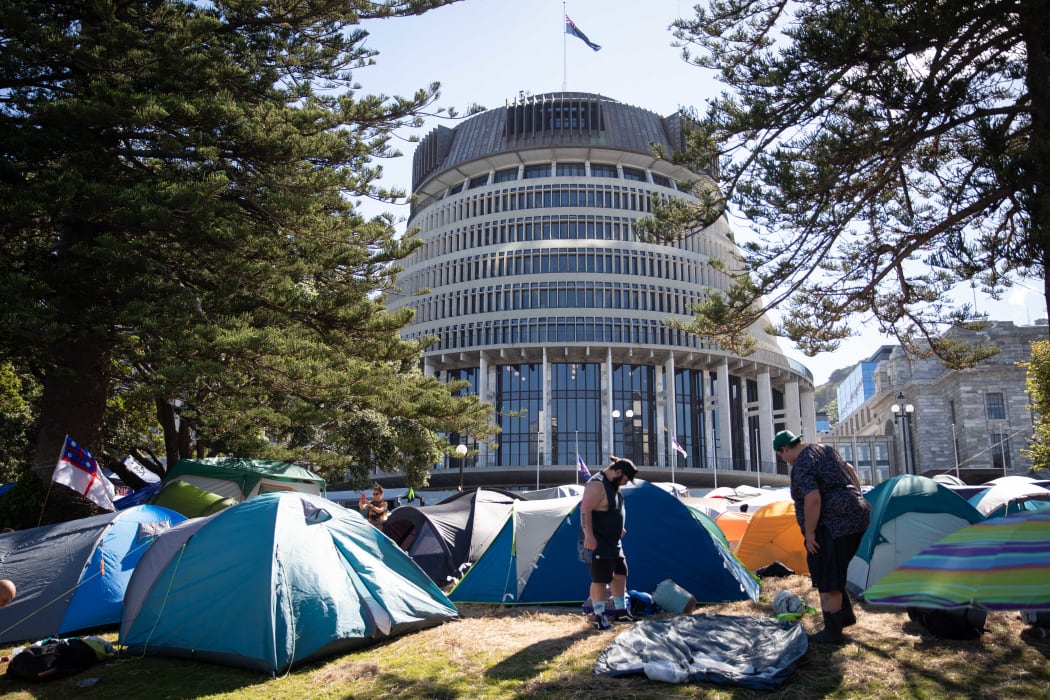
Photo: RNZ / Angus Dreaver
The unprecedented protest at Parliament has dragged into a third week, but politicians of all stripes are still grappling with how to respond to it.
For the government, there’s an interesting dynamic at play when thousands of people descend on Parliament’s lawn: it really can’t do that much about it.
“We live in a democratic country, people have the right to protest,” says Newsroom's political editor Jo Moir.
“This was always going to be a protest that would be able to go ahead because of the country that we live in. If we got beyond a peaceful protest, it was always going to be a police operational issue.”
The Government, however, cannot direct the police in its duties – a fundamental and long-held principle of operational independence.
“And this is where it becomes complex,” says the New Zealand Herald’s senior political reporter Thomas Coughlan.
“Yes, the government is responsible for law and order everywhere in the country - and maintaining the level of law and order it wants to maintain - but [Jacinda Ardern cannot] ring up the Wellington police force and say, ‘right, I want people here, here and here’, because that would be horrendous.”
But Coughlan says that left the Government in a delicate position in the early days of the protest: it could put pressure on the police to arrest hundreds of people in one fell swoop, risking a breakdown in social cohesion and leaving a group of already disgruntled people feeling even more marginalised.
That, Coughlan says, would have been a terrible idea.
The other option: give in to the protestors’ demands – or at least meet with them?
“But that’s a terrible idea as well,” he says.
“You’d set a precedent that anyone who wanted anything from the government just had to park their cars in Lambton Quay and you’d roll over.
“You’d have a political culture whereby any interest group who was able to find a few hundred people and some cars could get whatever they wanted from the Government.
“And that wouldn’t work.”
Moir and Coughlan agree the police hesitated in the early days of the protest, allowing the hardcore – which was much more determined and organised than the police expected – to set up an infrastructure which has persevered and grown over time.
This, says Coughlan, has left the Government humiliated, as though it can’t control what happens in its own home.
The Opposition also decided to play with fire when National leader Christopher Luxon delivered a speech on Monday, which Moir says came perilously close to offering support for the protestors.
She says National may have been better served by sitting tight and shutting up.
“You’ve got a situation where the pressure is very much on the police, but it is increasingly on the Government as well.
“My 101 when it comes to that sort of thing in terms of strategy is, if the public is putting pressure on the Government all by itself, don’t say anything.”
Coughlan says while numbers at the protest are starting to decrease and the police’s siege tactics are beginning to have an effect, it could still last weeks in some form or another.
He says looking back on the past couple of weeks, nobody has come out looking good: the police dallied, the Government looks weak, the Speaker looks to have trivialised a serious protest, and the Opposition has adopted a high-risk strategy which could alienate voters.

PIJF Photo: .


